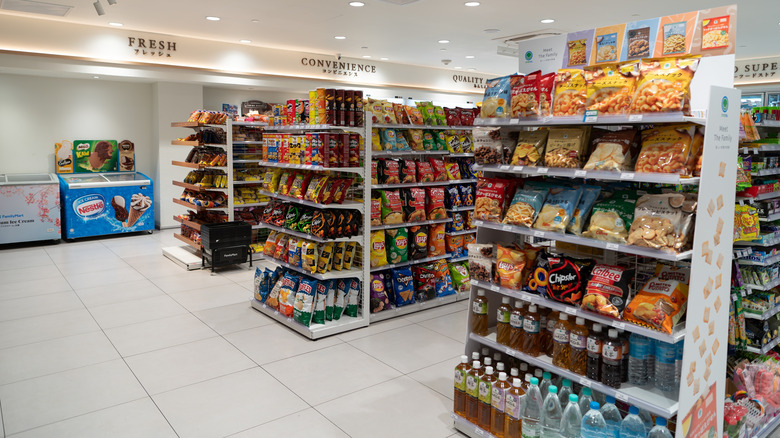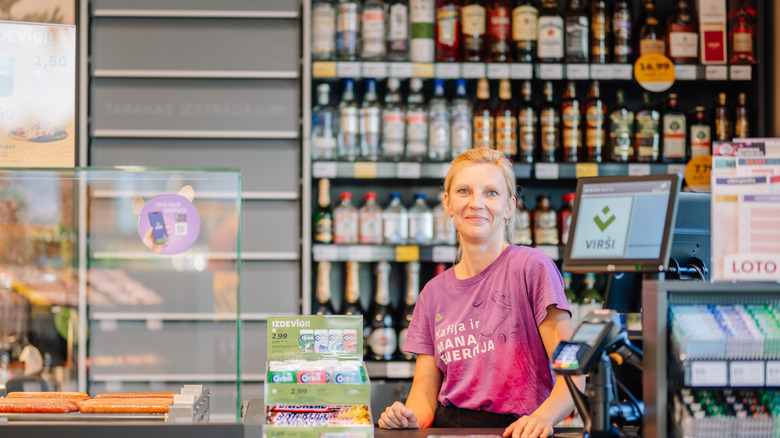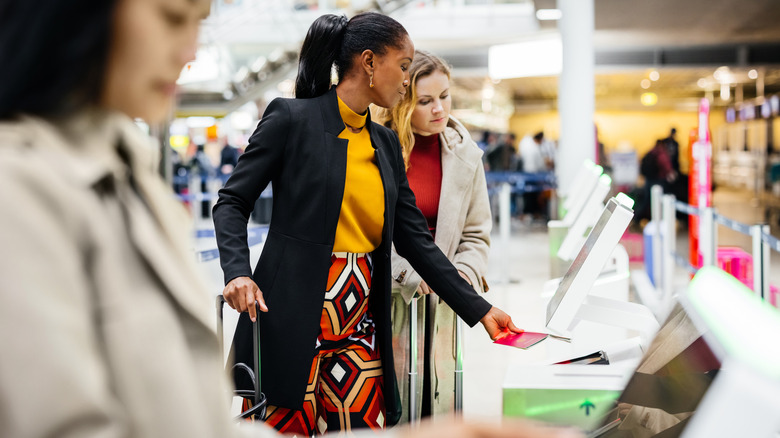Buying These Products At A Duty-Free Will Save You The Most Money
Duty-free shops are special stores you see at airports, usually after you go through passport control. When you buy items there, the price does not include the usual local sales taxes or special taxes that would normally be added in regular stores. You still need to carry your purchase out of the country, and when you return to the United States, customs can charge you tax if you bring in more than the allowed amount. Inside the duty-free store, you skip those local taxes and save more on alcohol and tobacco, which, if you don't, will contribute to how much you spend on alcohol each year.
The United States charges a federal tax of $13.50 for a gallon of alcohol at 50% strength. For a 1-liter bottle of spirits at 40% alcohol, about $2.85 of the price is just from this federal tax, even before adding state taxes or the prices stores set to make a profit. For cigarettes, the federal tax is $1.01 per pack of 20. For still wine (16% alcohol or less), the tax is $1.07 per gallon, or 28 cents per liter, while the tax on beer is $18 per 31-gallon barrel, which is 58 cents per gallon or 15 cents per liter. These tax rates are published by the U.S. Treasury's Alcohol and Tobacco Tax and Trade Bureau (TTB). For distilled spirits, the main law is in Section 5001 of Title 26 of the United States Code.
What amount is allowed into the United States
The basic rule is that if you are 21 or older, you can bring back one liter of alcohol duty-free to the United States, whether it's beer, wine, or liquor. This is the standard allowance set by U.S. Customs and Border Protection (CBP). If you bring in more than one liter, CBP will charge a customs duty of 3% on the value of the extra items.
In addition to this, you will pay a federal excise tax, depending on what you bring. For spirits, the federal excise tax is $13.50 per one gallon at 50% alcohol. For a 1-liter bottle at 40% alcohol, this tax is $2.85. So, if you bring in an extra 1-liter bottle of spirits at 40% alcohol, worth $30, you would pay approximately $0.90 in customs duty (3% of $30) plus $2.85 in excise tax, totaling $3.75.
However, there is an exemption to the above rule. If you're returning to the U.S. directly from the U.S. Virgin Islands, Guam, or American Samoa, you can bring up to five liters of alcohol without paying duty, but at least four liters must be bought in the territory, and at least one liter has to be a product made there, like local rum from the Virgin Islands, per the U.S. Customs and Border Protection. If you bring in more than 5 liters, you will pay an extra 1.5% import duty plus the standard U.S. federal excise tax on alcohol.
How to take advantage of duty-free stores
Before you buy anything at the airport, check the prices at your local warehouse club, liquor store, or grocery app, and use that as your baseline. If the airport price is lower, and you plan to use your U.S. duty-free exemption at the border, you can get an $800 exemption per person, and if you're traveling as a group and live together, you can add up everyone's exemptions — so two adults can bring back $1,600 in goods, tax-free. Also, keep every receipt; customs officers may ask to see proof of what you paid and where you bought it.
Know the airline rules before you buy alcohol at the airport, or you could lose your purchase at security. For checked bags, TSA and FAA rules let you pack up to five liters (about six regular 750 ml bottles) of spirits or other drinks with alcohol between 24% and 70%, but the bottles must be unopened and bought from a store. Drinks over 70% alcohol can't go in any bag, checked or carry-on. Beer and most wines are under 24% alcohol and have no set limit for checked luggage. If you hide extra bottles or don't declare them, Customs can take the alcohol and fine you. Other ways to save money on alcohol are by bringing your own while on a Disney cruise, or you can visit Porto, in Portugal, where you can order a beer for less than $2 a bottle.


